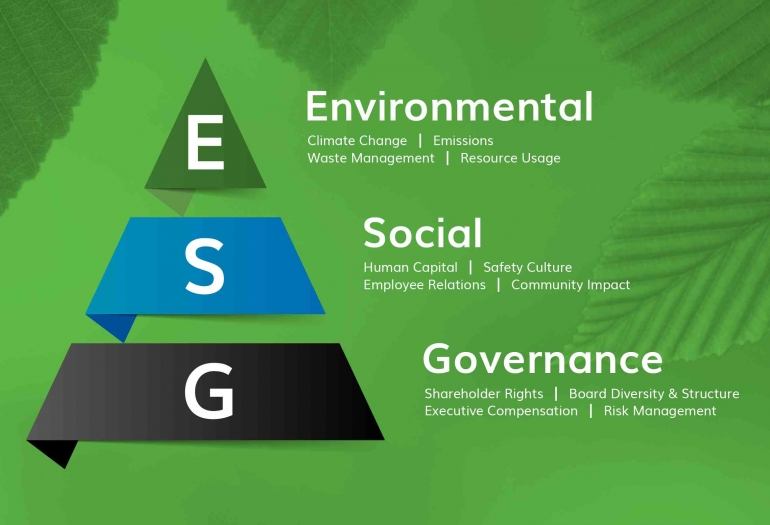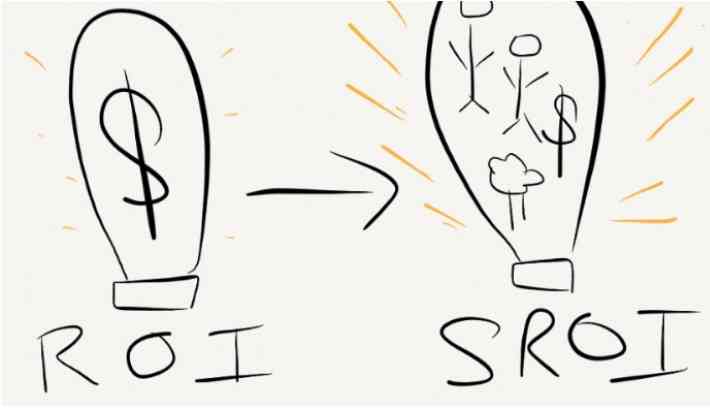Indonesia's ESG commitment is unmistakable, as exemplified by its pivotal role during its G20 Presidency in 2022, where it placed a strong emphasis on sustainability and environmental leadership. The agenda featured key themes such as digitalization and sustainable finance, highlighting the nation's dedication to advancing these crucial areas. Additionally, the COP26 conference held in November of the same year underscored the critical nature of climate sustainability for the next decade. These developments collectively underscore Indonesia's proactive stance in addressing pressing environmental challenges and driving positive change on a global scale.
Indonesia has made notable strides in addressing income inequality and enhancing law enforcement, but it grapples with persistent challenges in several ESG (Environmental, Social, and Governance) areas, including corruption, greenhouse gas emissions, gender imbalances, and reliance on external food sources. The growing recognition of ESG's significance is anticipated to drive a shift in the nation's long-term export structure, closely tied to Indonesia's ongoing decarbonization efforts.

The Indonesian Financial Services Authority (OJK) has taken the lead in promoting sustainable finance and establishing a framework for green bonds. OJK has unveiled Phase II (2021-2025) of a sustainable finance roadmap aimed at identifying and integrating ESG risks. In 2017, OJK introduced Regulation No. 60/POJK.04/2017 outlining the green bond framework's requirements and processes in Indonesia. The Ministry of Finance has issued sovereign green sukuk, with proceeds earmarked for renewable energy, energy efficiency, disaster risk reduction, waste-to-energy initiatives, and sustainable transportation. OJK also implemented Regulation No. 51/POJK.03/2017 in 2017, mandating financial services entities to publish sustainability reports.
Furthermore, the Indonesia Stock Exchange (IDX) has taken significant steps towards promoting ESG practices. In December 2020, IDX identified 30 stocks with strong Environmental, Social, and Governance (ESG) assessments, devoid of major controversies, characterized by transaction liquidity, and exhibiting commendable financial performance. These stocks became the initial constituents of the IDX ESG Leaders, an initiative aimed at fostering sustainable investment and enhancing ESG practices in the Indonesian Capital Market. IDX's commitment to ESG practices is underscored by its membership in the United Nations Sustainable Stock Exchange (SSE) Initiative since April 2019, as well as various initiatives outlined in the Sustainable Finance Action Plan. The launch of the IDX ESG Leaders Index further reinforces IDX's dedication to promoting ESG practices and advancing sustainable investment in Indonesia. The index is built upon an ESG risk assessment, measuring the extent to which listed companies have implemented ESG criteria based on risk exposure within their respective industries. IDX collaborates with Sustainalytics, a prominent independent institution specializing in ESG research and corporate governance, to provide ESG data, including risk assessments and controversy analyses, forming the basis for the IDX ESG Leaders Index constituents.
In Asia, Indonesia stands out with favorable perceptions of ESG, with high agreement levels (81%). Investments guided by ESG principles have witnessed significant growth in the country, aligning with the increasing demand for sustainability reporting. Notably, sustainability reporting is on the rise, with existing regulations and guidance in place. Anticipated future regulations, such as carbon taxes and green sukuk (green investments), further reinforce Indonesia's commitment to ESG, underscoring the focus on environmental, social, and governance aspects to ensure economic and environmental sustainability.
The importance of integrating environmental, social and corporate governance (ESG) factors in business decision making is increasingly becoming a top concern for companies around the world. Indonesia, with its natural diversity and growing economy, is one of the countries that faces major challenges in managing environmental, social and corporate governance (ESG) issues. Climate investment within an ESG framework has become an important priority for companies in Indonesia, along with increasing awareness of environmental impacts and social responsibility. One way to measure the positive impact of investments in climate issues is by analyzing the Return on Investment (ROI ) and Social Return on Investment (SROI).
ROI in Climate Investment in Indonesia
ROI is an important metric in measuring the financial benefits obtained from climate investments in Indonesia. Companies that invest in green technology, renewable energy, or sustainable practices can use ROI to assess whether the investment generates adequate financial returns. For example, a company adopting a renewable energy system may be able to measure ROI through reduced energy costs or additional revenue from selling excess energy. ROI is calculated with the following formula:
ROI = (Net Profit / Investment Cost) x 100%
In an investment or business context, ROI measures the extent to which the investment or business decision produces profits that are greater than the costs incurred. ROI is a commonly used metric to evaluate investment efficiency and performance.It is important to note that in the context of climate investment in Indonesia, ROI includes not only financial returns but also broader social and environmental benefits. For example, reducing carbon emissions or reducing environmental impact can provide long-term value that is difficult to measure directly in numbers, but remains an integral part of a comprehensive ROI.
SROI in Climate Investment in Indonesia
SROI is a more holistic tool for measuring climate investments within an ESG framework. SROI focuses on measuring the social, environmental and financial impact of an investment or business decision. SROI is more comprehensive because it tries to combine all of these elements in one metric. It attempts to measure the social, environmental, and financial impacts generated by the investment. In Indonesia, SROI can be used to measure positive impacts on local communities, reductions in carbon emissions, and positive changes in sustainable practices.
For example, a company investing in a reforestation project in Indonesia will not only measure the financial benefits of the investment but also the social impact in terms of new jobs created and the positive impact on the well-being of local communities. SROI allows companies to more holistically measure the impact of climate investments and understand the long-term value of those investments.

Challenges in Measuring ROI and SROI in Indonesia
Although ROI and SROI are powerful tools for measuring climate investments within an ESG framework, there are challenges in collecting accurate and relevant data in Indonesia. Some challenges include:
- Limited data availability, especially in terms of detailed environmental data.
- Measuring social impact is often subjective and requires a careful approach.
- Limitations of standard methodologies for measuring SROI that are relevant in the Indonesian context.
Conclusion
Climate investment within an ESG framework in Indonesia is an important step towards sustainable development. ROI and SROI are important tools for measuring the impact of these investments, both in terms of financial returns and broader social and environmental impacts. Despite challenges in collecting relevant data, companies in Indonesia must commit to measuring and reporting the impact of their climate investments in order to drive greater positive change in protecting the environment and societal well-being. Thus, climate investments in Indonesia not only generate financial returns, but also contribute to greater sustainability for all stakeholders. Indonesia, like other countries, is trying to face the challenge of climate change and implement ESG principles in business activities and public policy. Although there is still work to be done, the steps that have been taken demonstrate a commitment to achieving sustainable development and reducing negative impacts on the environment and society. With support from the private sector, government and society, Indonesia can continue to progress in implementing ESG principles and contribute to climate change mitigation globally.
Sources
https://www.sustainahaus.com/articles/esg-trend-in-indonesia
New ESG Intelligence Report Shines a Spotlight on Indonesia's Long-Term Opportunities Amid 2022 G20 Presidency (pwc.com)
Baca konten-konten menarik Kompasiana langsung dari smartphone kamu. Follow channel WhatsApp Kompasiana sekarang di sini: https://whatsapp.com/channel/0029VaYjYaL4Spk7WflFYJ2H









